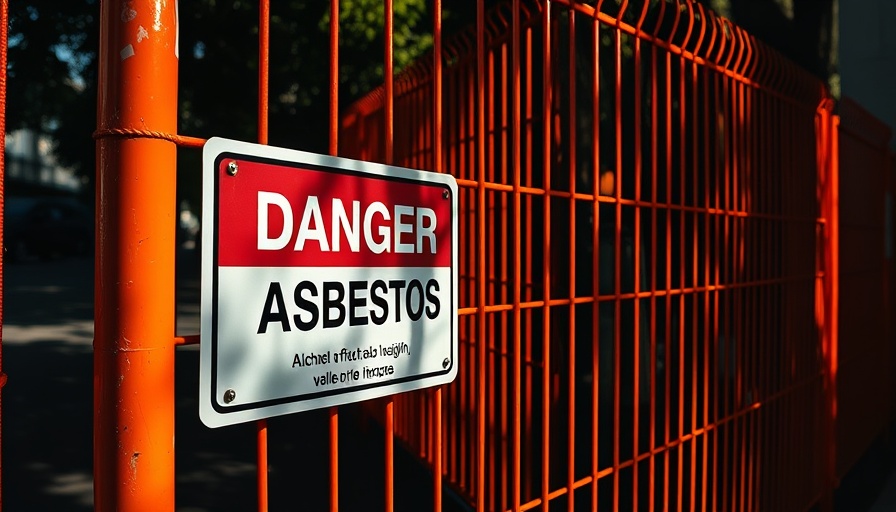
America's Ambivalent Asbestos Dilemma
The recent announcement by the Environmental Protection Agency (EPA) under the Trump administration to reconsider the ban on asbestos—a material long recognized as a dangerous carcinogen—raises serious concerns about public health and safety. This twist in policy comes against a backdrop where previous administrations had begun to take steps toward eradicating the use of asbestos, a mineral associated with over 40,000 deaths per year in the United States alone.
Asbestos: A Historical Health Crisis
For decades, asbestos has been heavily scrutinized for its serious health implications. The mineral's fibers, when inhaled, can lead to severe diseases, including lung cancer, mesothelioma, and other forms of cancer. Historically, its ban in many parts of the world signals a growing recognition of its dangers. The United States, however, has lagged behind, with only a recent push under the Biden administration to address this critical issue.
The EPA's Sudden Shift: Impact on Public Health
The reversal of the asbestos ban raises alarm bells regarding the Trump administration's commitment to public health. While the Biden administration had made strides to join over 50 countries in banning chrysotile asbestos, the current EPA's plans to reconsider this decision can be perceived as a direct contradiction to the well-established science surrounding asbestos exposure. Notably, the Trump administration's leanings toward deregulation and corporate interests could undermine years of advocacy for safer environments.
Corporate Interests vs. Public Safety: A Dangerous Intersection
The legal challenges from various corporate entities, including the American Chemistry Council, manifested shortly after the ban was put in place, highlighting the tensions between economic interests and public safety. With the EPA now signaling a reconsideration of the ban, the questions linger: who benefits from this reversal? Public health advocates argue that this move is less about reopening scientific dialogue and more about catering to corporate desires at the potential expense of lives.
Political Influences and Public Perception
Curiously, Trump's historical backing of asbestos—famously claiming in his book *The Art of the Comeback* that asbestos is '100 percent safe'—has been deemed controversial. Associating the anti-asbestos movement with organized crime further convoluted the narrative and positioned asbestos as a misunderstood material in need of revival rather than a menace to health. As marketing managers, understanding how political rhetoric affects public perception is crucial—especially for industries reliant on strong public trust.
Future Predictions: The Path Ahead
As the EPA embarks on a potentially lengthy regulatory review that may take up to 30 months, the implications for businesses and public health loom large. The reconsideration could potentially delay or soften regulations on asbestos usage, reinforcing existing market pathways that allow this hazardous material to persist in products. For companies engaged in manufacturing and healthcare, this evolving landscape necessitates vigilance and proactive communication strategies that align with emerging regulations and public sentiment.
Conclusion: The Urgency for Informed Public Discourse
The possibility of renewed asbestos industry support poses ethical questions around corporate responsibility and public safety. For marketing managers, conveying the importance of safe practices in materials and promoting transparency in relation to public health issues becomes essential. Addressing consumer concerns through proactive messaging can not only foster trust but also guide companies toward safer practices. Engaging with the public on these critical issues will help companies navigate the complex implications of the reconsideration.
It is incumbent upon us to remain informed and active in discussions about such impactful changes, as they define the very air we breathe and the products we consume. For further insights, involving stakeholders in conversations about health regulations can create a more informed and responsible marketplace.
 Add Row
Add Row  Add
Add 




Write A Comment